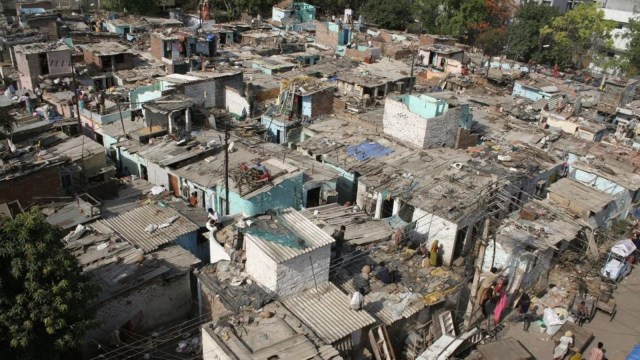Now, a Rs 1,500-crore plan for waste management in Mumbai’s slum pockets
The agency will be in charge of all solid waste management (SWM)-related tasks ranging from collection of garbage, segregation of waste, sweeping of passages, cleaning of toilets, drainage etc within the slum pockets in the city, which, according to civic officials, have over 15 lakh households.
 The Dharavi area, spanning 2.8 square kilometres, is referred to as Asia's largest slum. (Express File)
The Dharavi area, spanning 2.8 square kilometres, is referred to as Asia's largest slum. (Express File)With current plans to maintain cleanliness in city slums — which account for nearly 48 per cent of Mumbai’s population — faltering, the Brihanmumbai Municipal Corporation (BMC) has chalked out plans to appoint a single agency, which will be tasked with all works related to cleanliness in the city’s slum pockets for four years. The civic body has already floated tenders for appointing the agency for the Rs 1,500-crore plan.
The agency will be in charge of all solid waste management (SWM)-related tasks ranging from collection of garbage, segregation of waste, sweeping of passages, cleaning of toilets, drainage etc within the slum pockets in the city, which, according to civic officials, have over 15 lakh households.
Currently, waste management-related tasks within the slums of Mumbai are undertaken by volunteer units — which consist of dwellers of the slum pockets — under the Swachh Mumbai Prabodhan Abhiyan. According to officials, each volunteer unit is entrusted with 150 units (households), wherein they are responsible for executing all waste management-related tasks, maintaining cleanliness as well as educating slumdwellers about segregation.
Pointing out the lacunae in the existing mechanism which is primarily ‘volunteer-based’, an official from the SWM department said, “Firstly, the payscale is very low. Secondly, since it is a voluntary system, we could not force them to do the work. While they are in charge of all waste-related and cleanliness tasks, the BMC supported them throughout but even then the system is failing. Therefore, we have now decided to appoint a singular agency to execute these works.”
While each unit was paid a monthly salary of Rs 5,400 — even as the system was volunteer-based — each slum household and shop were also respectively asked to pay Rs 20 and Rs 50 separately.
With the appointment of the new agency, all waste management-related works in slums will be undertaken for a span of eight hours daily, as against the current units which work for five hours. “We will be strictly monitoring the agency and will penalise them if we find them violating any tasks,” said an official.
According to BMC officials, of the 6,300 metric tonnes of waste generated in the city, slum pockets account for nearly 2,500 metric tonnes of waste.
Data procured from the Slum Rehabilitation Authority (SRA) show that slum households constitute 48.35 per cent of the city’s population, with the Geographic Information System (GIS) survey conducted by the SRA identifying 1.6 million (16 lakh) slum settlements comprising 3,972 slum clusters.
Sudhakar Shinde, additional municipal commissioner who heads the SWM department in BMC, told The Indian Express, “We have approved a tender of Rs 1,500 crore for this project. The agency will be entrusted with the task of executing all works related to cleanliness. These agencies are not NGOs. This is a first project of its kind which we are implementing to improve the conditions in slums.”







